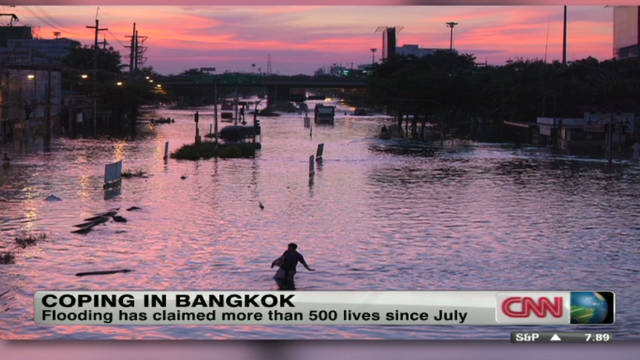A lot of effort has gone into promoting various tax incentives to encourage people and businesses to make charitable donations to help those affected by Thailand's severe flooding.
If the donation is made by an individual, a special deduction of 150% of the amount to a recognised charity is allowed, but not exceeding 10% of taxable income after deductions in total. If the donor is subject to corporate income tax, a deduction of 150% of cash and asset donations is allowed, but it may not exceed 2% of net taxable profit.
Since the donation amounts are capped, corporate donors are likely to limit their pledge to their deduction ceiling. An alternative being discussed is to allow an employer to help its employees who have been affected by the flood. The support can be in the form of cash for food, hotel or apartment accommodation during evacuation.
The main problem under the current tax regime is that there is no clear exemption for employees who receive a subsidy from their employer, which may be treated as a fringe benefit that is taxable.
An interpretation can be made that the subsidy is "income derived from maintenance and support under moral purposes, or gift received in a ceremony or on occasions in accordance with custom and tradition", which is tax-exempt pursuant to Section 42 bis (1) of the Revenue Code.
Unfortunately, relying too much on this exemption could expose employers to an audit on the tax deductibility of such payments for corporate income tax calculation.
The solution for the government is quite simple. It should enact a special exemption from personal income tax similar to the existing healthcare support (medical expenses paid by an employee and reimbursed by an employer) under Section 42 (17) as well as Ministerial Regulation No. 126.
This channel will automatically allow employers to claim that such expenses are incurred in relation to the employees' welfare and are tax-deductible under the normal rules of the tax law.
The more difficult part is to determine the criteria and conditions for employees to qualify. The exemption should be granted to all employees who are really suffering from the flood.
The Finance Ministry stated that companies operating in industrial zones that are affected by the flood will receive import tax waivers to replace damaged machinery, and possibly on raw materials also.
As some machinery and equipment is heavily damaged and will need to be replaced or repaired, Departmental Instruction No. Por. 58/2538 provides guidelines for companies to deduct the residual cost value of an asset that is lost or becomes defective.
The companies are not allowed to deduct the residual cost as a tax expense where machinery becomes defective beyond repair if it is still in its possession.
Only where such machinery is destroyed or sold at a loss can its residual cost be tax-deductible and the companies need to include the selling price as income subject to normal corporate income tax and VAT. This requirement will definitely add more of a burden to suffering companies as it will likely take a while before they can sell damaged assets.
Also, money spent by companies to fix assets may or may not be tax-deductible, depending on whether or not such expenditure repairs the assets back to their original ability or improves the usability of the assets. In the former case, the companies will be entitled to write off the repair cost immediately.
As some companies may never see profits over the next five years, writing off the entire amount of the repair costs as a carried-forward tax loss will not help them from a tax standpoint.
If the money spent improves the quality of the assets from their condition before the floods, the law treats that expenditure as an addition, alteration, extension or improvement of properties, which is a capital expenditure for the tax purposes and must be amortised as if they were new assets.
Again, you will find that companies that can recover and return to profitability quickly will prefer an immediate write-off to amortisation deduction.
Due to wide disparities in companies' ability to recover from the disaster, policymakers should discuss how best to assist them and whether special cases should be approved. Of course, measures to prevent abuse must be considered.
Industry groups are also demanding that the government extend the period for tax losses, which currently can be carried forward only five years.
The government appears to be discussing extending the deduction to seven years. Although prolonging the loss period is a good idea, it would be perfect if the government studied the possibility of implementing the loss carry-back in the Revenue Code at the same time.









